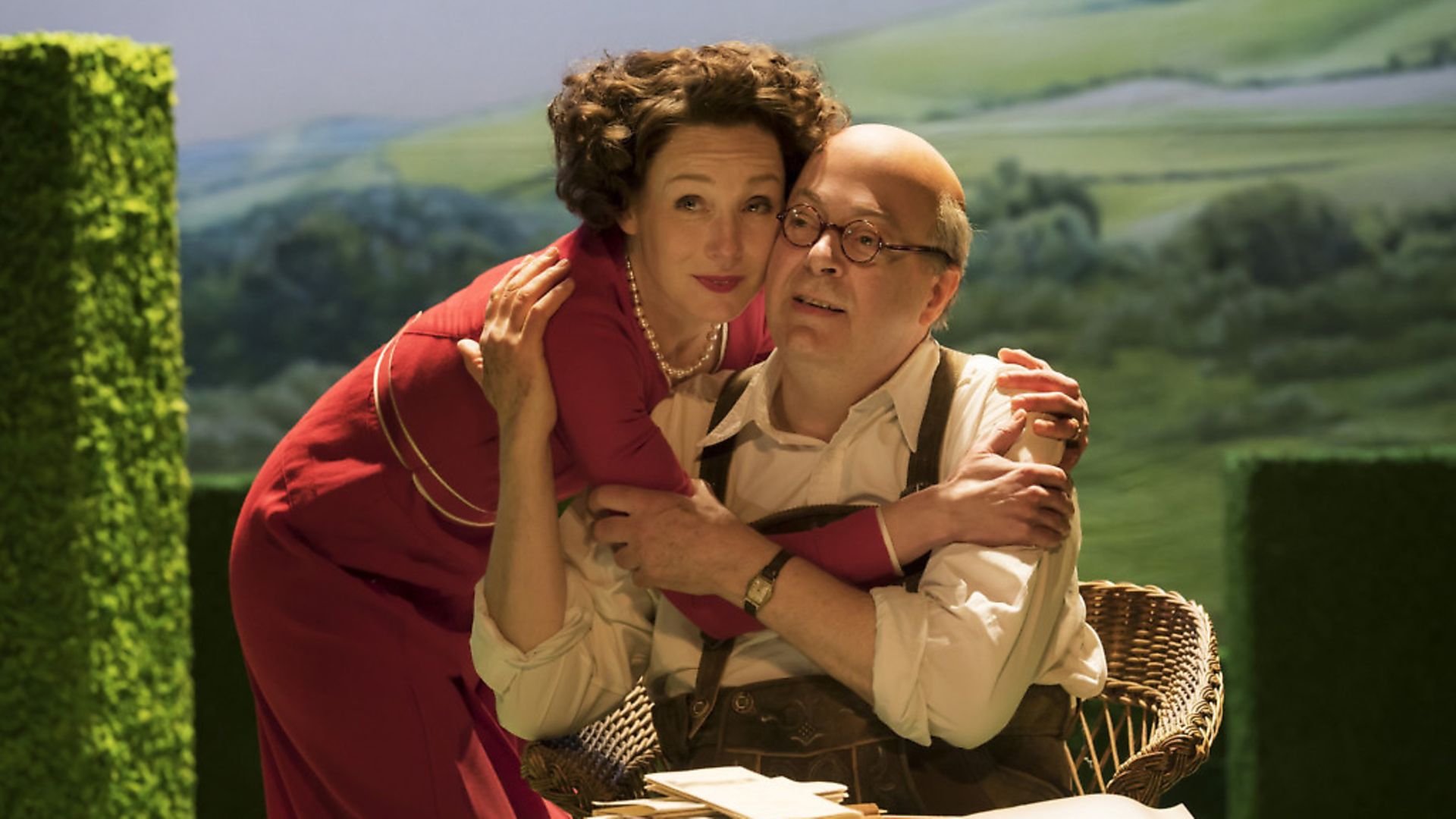
TIM WALKER reviews a ‘stylish and highly intelligent’ Hampstead Theatre production
‘Glyndebourne is quintessentially English,’ opines Nancy Carroll as Capt John Christie’s wife Audrey in The Moderate Soprano. ‘Fritz, Carl and Rudy made sure of that.’
The playwright Sir David Hare clearly sees in the story of how the eccentric captain set about creating an opera house in his garden overlooking the Sussex Downs in the 1930s an allegory for our times.
Christie – brought to life with enormous panache by the fine Roger Allam – manages to recruit a dream team of brilliantly creative individuals to launch his venture only because they all happen to be refugees from Nazi Germany with not a lot else to do. There is the great conductor Dr Fritz Busch (played by Paul Jesson), who became his first music director; Prof Carl Ebert (Anthony Calf), the former Intendant of Berlin’s Städtische Oper and Christie’s choice as artistic director; and then there’s the dashing Austrian Rudolf Bing (Jacob Fortune-Lloyd), who lands the job of general manager.
In common with other members of his class, Christie is, at the beginning of the play, not as hostile as he should have been to what was happening in Germany in the years before the war and even feels the need to remark upon Bing’s Jewishness. He reasons that the Führer ‘can’t be all bad as he loves Wagner’, and he tells his uneasy house guests that he considers it a mistake to make too much of a fuss. He then adds, resonantly: ‘I don’t understand what the Nazis want… I suppose it is the past.’
Great plays have already been written about how Germany’s artistic community responded to Hitler – one thinks of Sir Ronald Harwood’s Taking Sides, with its unsparing portrait of Wilhelm Furtwängler, who was forever tarnished by remaining in Germany and doing Hitler’s bidding – but this is necessarily a lighter and more quirky affair because of the rustic setting and Christie’s infinitely more benign brand of tyranny. It is a play about Britishness, snobbery, culture shock, and, above all things, how individuals can achieve so much more when they put aside their egos and work together.
There is perhaps too much laboured exposition at the beginning – the characters sometimes sound like they are reciting vast chunks of Wikipedia – but act two is an altogether more emotionally literate affair as Christie has to cope with the death of his wife (the eponymous soprano), the way the institution he has created has to change with the times and his own old age and infirmity. The old man observes so truthfully that all human endeavour is always so much more fun at the start, only the participants seldom appreciate it at the time.
This stylish and highly intelligent Hampstead Theatre production – directed by Jeremy Herrin – is Sir David Hare at close to top form. Just as the opera house that Christie created went on to have global significance, so this story of a group of motley Europeans striving for perfection in the Sussex countryside more than 80 years ago is really also a lot more than the sum of its parts. At its heart is one man’s journey towards becoming a fully-fledged member of the human race.










